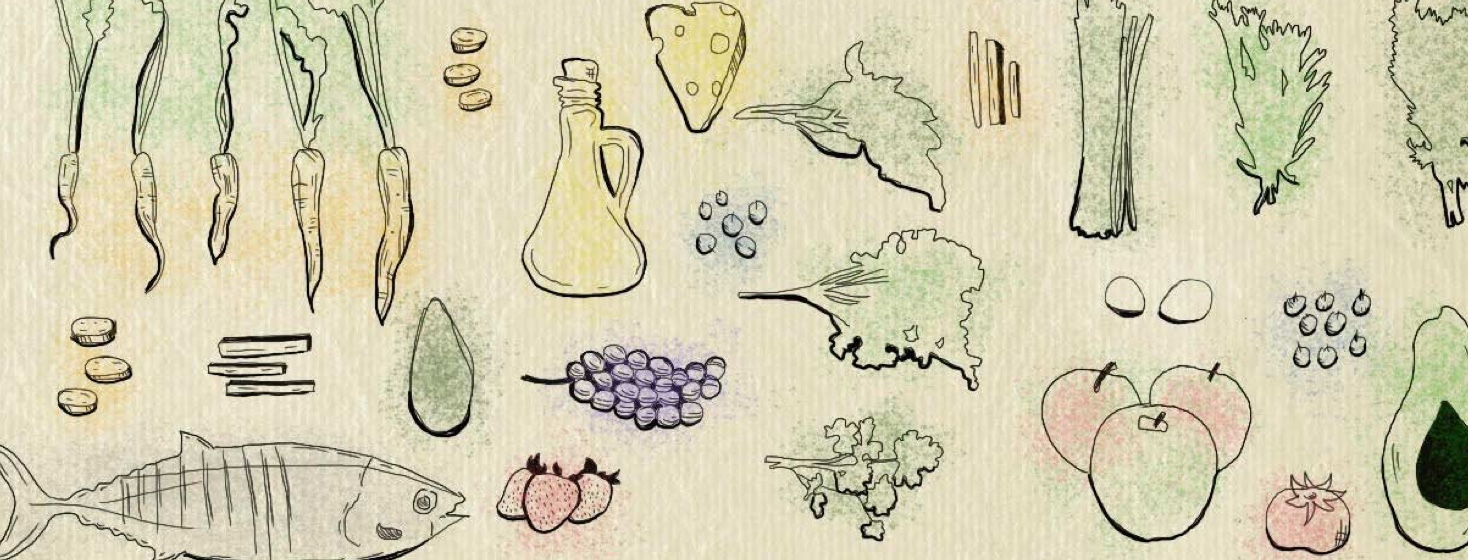The Mediterranean Diet for Weight Loss: Is It for Me?
Reviewed by: HU Medical Review Board | Last reviewed: August 2023 | Last updated: April 2024
Looking for a proven, healthy way of eating that can help you attain and stay at a healthy weight? How about a diet that may protect you against heart disease, stroke, cancer, diabetes, and early death? The Mediterranean diet (MedDiet) may be for you.1-5
The MedDiet is not just about food – it is a lifestyle. It is an eating pattern that should be combined with moderate physical activity, regular rest, and social eating.1-5
Unlike many diets, on the MedDiet you will focus on food quality instead of counting calories. Natural, unprocessed foods will provide important nutrients that processed foods lack. “Good” fats from extra-virgin olive oil, nuts, seeds, and fatty fish will help your body in important ways. Together, these factors may help you lose weight and become healthier.1-4,6
How could the Mediterranean diet help me?
In many countries, dangerous health conditions are common and getting worse. Obesity, heart disease, diabetes, and cancer are some examples. But people in Mediterranean countries often have fewer of these problems and tend to live longer. Studies point to diet and lifestyle as the reason.1-5
Here are the ways the MedDiet may help people get and stay healthy:1-4
- Helps achieve a healthy weight – The diet leads to long-term weight loss and prevents age-related weight gain.
- Improves levels of good cholesterol (HDL) with healthy fats – HDL protects your brain and organs, fights inflammation, and steadies your blood sugar level.
- Balances blood sugar levels with natural, unprocessed foods – This is true even for people with diabetes, whose blood sugar is difficult to control.
- Provides key vitamins and minerals that processed foods do not provide.
- Lowers your level of bad cholesterol (LDL) by removing bad fats – LDL buildup in your arteries can lead to stroke.
- Aids digestion, keeps gut bacteria healthy, and helps the body remove waste – This is due to the high fiber content of the diet.
- Provides many antioxidants via fresh fruits and vegetables – Antioxidants protect against diabetes, heart disease, cancer, and inflammation.
- Helps you live longer.
The MedDiet is easy to follow, tasty, and enjoyable for most people. People also enjoy the physically active, social-eating lifestyle.
Why should I choose the MedDiet over other diets?
There are many diet plans that promise weight loss and other benefits. Researchers have compared a few common ones. They looked at whether people lost weight and kept it off. They also noted health factors like heart health, blood pressure control, and blood sugar control. And they considered total life span. Here are some results of those studies.1-3,5
A low-fat, low-calorie diet:1-3
- Helped people lose weight, but slowly
- Lowered bad cholesterol, blood pressure, and heart disease risk
- Had no clear benefits in 2 large studies
- Was too restrictive for many people, and they quit the diet
A low- or extremely low-carbohydrate diet:1,4,5,7
- Helped people lose weight quickly. But at 1 year, weight loss was the same as the low-fat, low-calorie diet
- Reduced people’s appetites
- Helped control blood sugar, raised good cholesterol (HDL), and lowered blood pressure at first. But over time, it increased bad cholesterol (LDL)
- Reduced people’s risk of heart disease and early death when protein and fat came from plants
- Increased incidence of diabetes when protein and fat came from animals. Over time, these people also had a higher chance of death
- Led to a serious lack of vitamins, minerals, and fiber
- Led to thinking problems in some people
- Was linked to pregnancy diabetes in pregnant parents and spinal cord defects in their babies
Low-fat vegan diets:5
- Helped people lose more weight than the MedDiet
- Increased good fats (HDL) and reduced bad fats (LDL)
- Improved the body’s use of insulin to lower blood sugar
- Lowered blood pressure, but not as much as the MedDiet
- Over time, could lead to vitamin B12 deficiency and low iron
The bottom line? The MedDiet came out on top for overall health and did not cause harm. It led to long-term weight loss, protection from many diseases, and a healthy lifestyle.1,2,4,5
What kinds of food will I eat?
Here are some examples of MedDiet foods:1-3,5,6
- Fresh, natural fruits and vegetables
- High-fiber whole grains
- Extra-virgin olive oil
- Beans and lentils
- Fish
- Nuts and seeds
- Skinless, white-meat poultry
- Low-fat plain yogurt, cottage cheese, and milk
- Eggs
- A few ounces of red wine daily, with a meal. But some people should not drink wine, so check with your doctor first.
How should I start the Mediterranean diet?
You may decide to follow the MedDiet eating pattern and lifestyle because it has helped a lot of people. But before you start, talk to your healthcare provider. They can advise you about what is best for you and your needs. A nutritionist can help you make a plan that fits your life. You also can Google “Mediterranean Diet” for specific shopping tips, recipes, and serving sizes.

Join the conversation